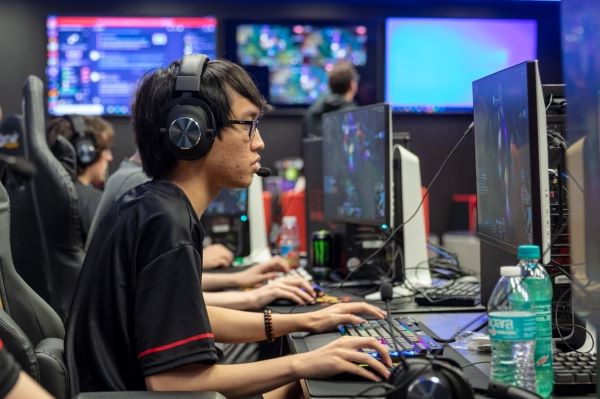Houston Sees Growth in Esports Industry
Published Jul 08, 2021 by David Ruiz
Alongside an ongoing run for green energy and the Californian exodus, the esports industry has gradually gained momentum in Houston. Just this year, the global esports market was valued at nearly $1.1 billion, up roughly 50% from 2020, according to Statista. Houston, ranked as the No. 2 fastest growing tech hub by Axios, is seeing noticeable investments dedicated to this space, including the University of St. Thomas’ esports center and Vindex’s announcement to locate their first-in-the-U.S. esports center in Houston.
While many competitive activities were halted due to the COVID-19 pandemic, the online nature of the industry allowed consistent growth worldwide. Panelists at this year’s CES, the largest annual tech industry conference, noted the esports industry functioned with minimal interruptions and instead gained momentum during the pandemic, S&P Global Market Intelligence reported. Organizations in Houston took advantage of the all-online atmosphere and grew their esports areas. Justin Pelt, director of esports at St. Thomas, said the recent virtual technology growth sets the stage to show the world that Houston is empowering the esports scene. “The more Houston innovates and grows in the esports space and starts hosting big events, people around the world in the esports demographic will inevitably take notice and potentially create more interest in our city,” Pelt said.
St. Thomas, which recently unveiled an on-campus esports center only months after establishing an official esports club, sees the investments as an opportunity for students and the city to gain first-hand experience in the industry. “We are looking to play a big part in the future of esports and in shaping the digital landscape here in Houston,” said Jeff Olsen, vice president of marketing and university relations for St. Thomas. “In addition to our esports team and academic offerings, we have big names from the esports and gaming world like Mainline and SixFoot production studios officing right here on our Montrose campus, as well as ongoing collaborations with the Houston Outlaws.”
Meanwhile, Microsoft’s announcement that it will lease space in the Ion connects Houston to a tech-giant with billions invested in the gaming industry. Their latest purchase of interactive entertainment publisher ZeniMax for $7.5 billion earlier this year is an indication the tech giant expects continued growth in the gaming sector in the years ahead. While esports in Houston is still in its initial growth stages, it is clear there is a global stage set for success in one of the fastest growing tech subsectors.
Learn more about Houston's growing digital technology sector.
 The Houston Report
The Houston Report




















